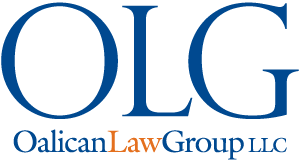Mrs. Jones called our office in a panic one afternoon after receiving a $10,000 bill from the nursing home. She explained that her husband had a fall a few months earlier and was transferred to a local nursing home. After about three months, the social worker in the nursing home scheduled a family meeting where the doctor indicated that it was not safe for her husband to come home. A few weeks later, she received a bill from the nursing home.
“Do I have to pay this every month?” she asked. “My husband and have worked so hard all of our lives so that we would be able to live in our home and pay our bills after we retired. We are modest people, not millionaires. How will I be able to stay in my home and pay my bills if I have to pay $10,000 a month for my husband’s nursing home care?”
We scheduled a meeting with Mrs. Jones the following week. After reviewing her information and assets, we learned that the Jones’ had approximately $200,000 in savings and owned their home which was worth about $250,000. They each received Social Security and Mr. Jones received a pension from the City. Mrs. Jones was 73-years-old and in good health. Mr. Jones was 77. He had recently suffered a fall and had early stages of dementia.
We told Mrs. Jones that her husband might be able to qualify for the MassHealth program. According to the Medicaid eligibility regulations, Mrs. Jones would be able to keep $117,000 and her husband would be able to keep $2,000. That said, Mrs. Jones could consider purchasing a Medicaid annuity with her excess assets. A Medicaid annuity, also known as an ” irrevocable immediate annuity”, allows the community spouse to purchase a stream of income which would not be counted as an asset when Mr. Jones applied for MassHealth benefits. We explained that the annuity must meet specific guidelines but that once it was purchased, Mr. Jones would be eligible for the MassHealth program and she would be able to keep their entire savings. We also explained that MassHealth would allow her to keep her home and that she would not be required to sell it.
OLG assisted the Jones’ with a MassHealth application and several months later, Mrs. Jones received her husband’s retroactive approval notice. She was so thankful that the attorneys at OLG were able to assist her in protecting all of her assets.
